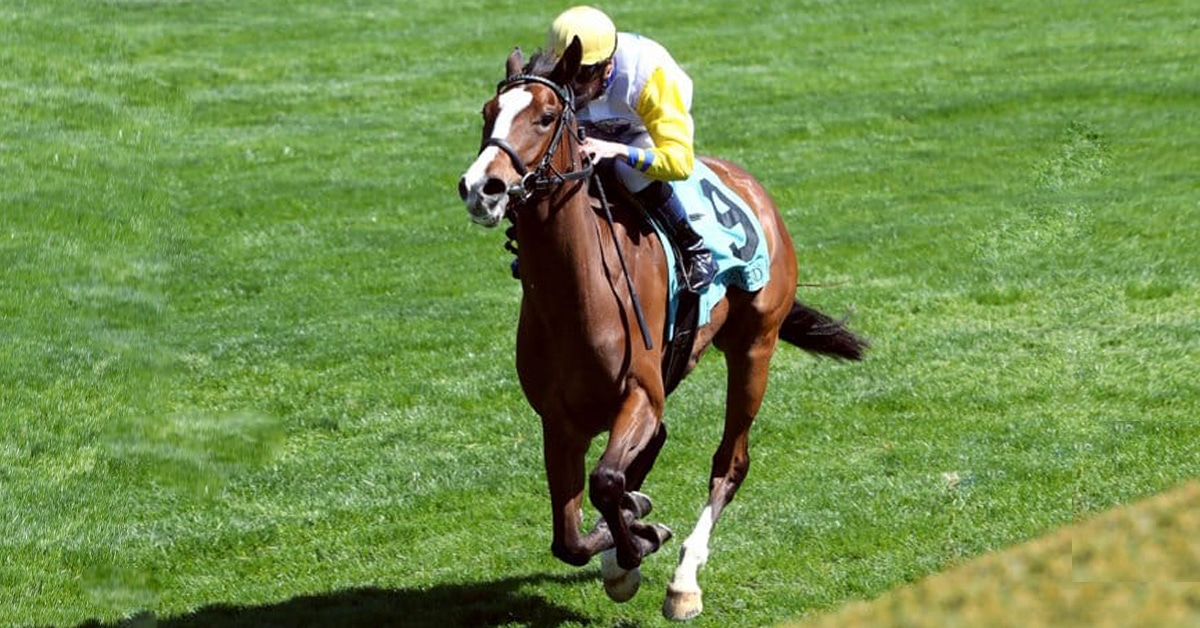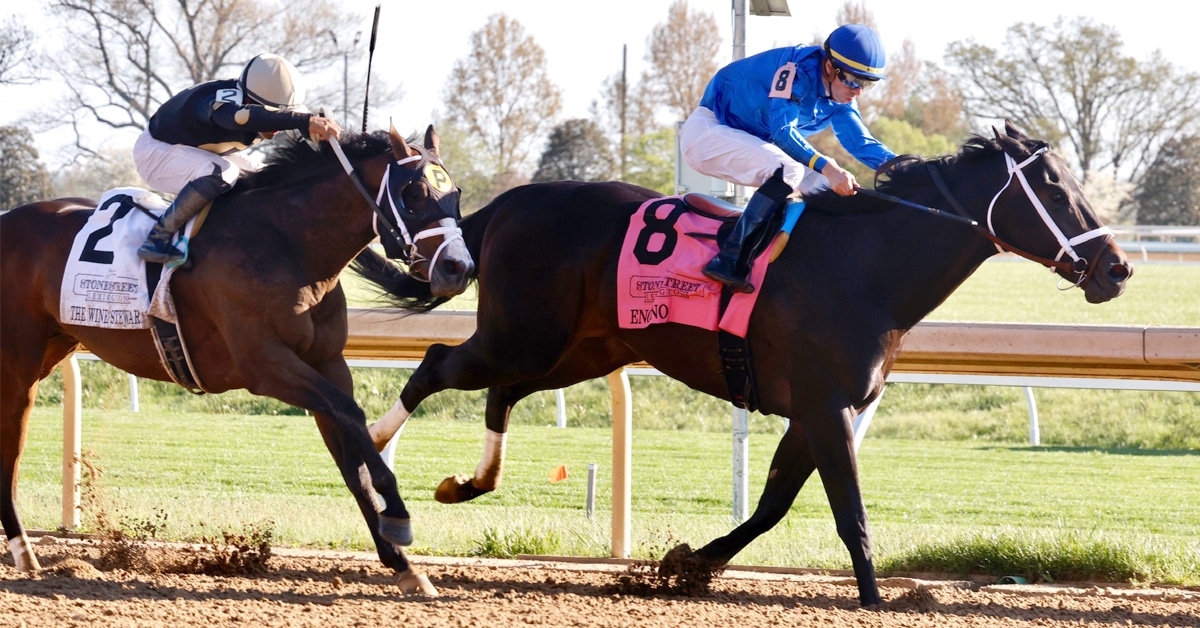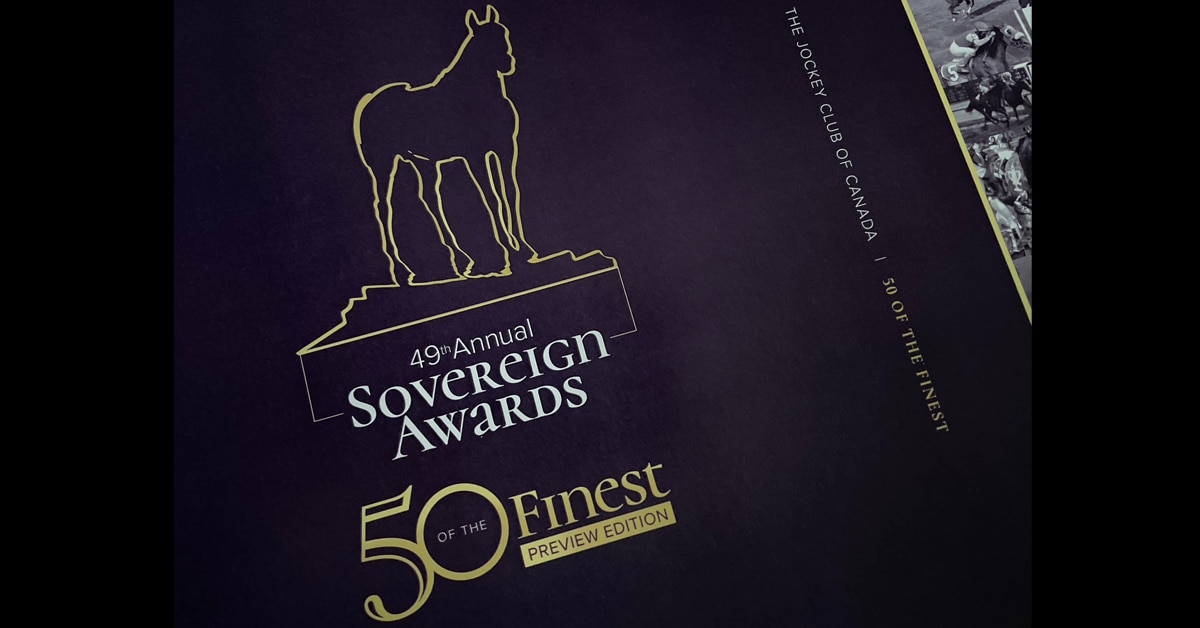Open Letter to Premier Dalton McGuinty from RacingFuture.com
Dear Premier McGuinty,
Your government has announced that it will pull its slot machines from Ontario race tracks, abruptly canceling a 14-year partnership that has been helping our province’s horse breeding and racing industry to make the transition from the 20th Century to the 21st.
I am writing to share with you respectfully that I have learned in these past weeks that the more Ontarians hear about this, the more people are concerned. We fear that what undoubtedly was meant to be a well-intentioned move to maximize revenue opportunities for your government has the potential instead to rapidly become a very unnecessary human, economic and social catastrophe.
Going ahead with this abrupt change – implemented without enough analysis of the impact that it will have and without any alternative measures having been put in place to offset the damage – risks ruining the lives of tens of thousands of ordinary, hard-working people; wiping out an industry that directly contributed more than $2.3 billion to Ontario’s annual income in 2010 and also three times as much when you add in the indirect and induced multipliers; and squandering rather than enhancing revenue potential for your government.
The Ontario Lottery and Gaming Corporation has already removed the slots from race tracks in Fort Erie, Sarnia and Windsor, throwing 560 employees into the unemployment lines, and threatening the jobs of many more. Toronto’s Woodbine race track is next, where another 700 will lose their jobs.
What is at stake here is not the removal of a “subsidy”, as some people have wrongly described it, but the wrecking of what has been a complex and successful partnership. This partnership provided Ontario race tracks 20 percent of the revenue from the slot machines that they hosted, as an appropriate venue with prospective bettors already present and with capable security. Their portion of this 20 percent share has allowed the race tracks to increase purses, update their interactive technologies, and make capital improvements to the tracks. A near-equal portion of the 20 percent goes to the rural breeders and trainers who, like most of the agricultural industry have to compete in the face of generous offshore subsidies.
And while some people associated with your government have inaccurately characterized horse racing as the “Sport of Kings”, that’s only what it used to be, not what it is in today’s Ontario. These days, horse racing and breeding is much more an industry of ordinary folks. It employs 55,000 people, 31,000 full time, and very few are rich. Many live outside Toronto in rural areas, running small farms, breeding and boarding horses, or in nearby towns, providing veterinary, training, feed and transport services. In Toronto itself, people work at the racetrack, grooming and walking horses, keeping the horses healthy and fed, sweeping the floors and cleaning the horse stalls. Others are running the paramutuals and maintaining the slots. It’s pretty basic work, honest labour, not lavishly paid. And they pay taxes, all 55,000 of them.
Directly, indirectly and through all its multiplier effects, the horse racing industry contributes more than $6.5 billion a year to Ontario’s economy, of which $1.5 billion is paid in wages. The loss of substantial portions – or all – of that contribution would be catastrophic, particularly in Ontario’s troubled agricultural sector. Of the 55,000 people now employed by the industry, only 4,000 jobs – the OLG slot workers – might be picked up elsewhere eventually. There’s no certainty here, and less that the jobs will reappear in locations suitable for the workers whose lives have been disrupted.
Horse breeding and racing, in other words, is a far bigger industry than the officials who developed this recent policy change appear to understand. It spends more than $1 billion annually producing, training, and maintaining horses alone, nearly all of it in Ontario. Almost 40 percent of that is spent on training, which is the largest single cost, with much of the overall expenditure made in rural communities. Horse breeding alone pays out over $60 million annually in wages, again mostly in rural Ontario.
It is not an exaggeration to say that the swift and arbitrary removal of slot machine revenues from Ontario’s 17 race tracks will severely damage the horse-breeding and racing industry across the province. It could destroy it completely. That would put a large number of good people, with specialized skills that can’t be transferred, into the unemployment lineups. It will also shred the interlocked fabric of Ontario’s already-fragile agricultural sector, making other parts of it non-viable. If this industry disappears, it will make the lives of far more than the 55,000 directly affected harder, and the losses in tax revenue to government, given the multipliers involved, wider and deeper than can be drawn on a simple balance sheet. It will be far greater than $78,2 million.
Here is what we already know for sure: Based on 2010 figures, the removal of slot machine operations will result in a direct loss of $60 million in annual tax revenues to the local governments that host the race tracks. $165 million will be taken from the already-vulnerable annual incomes of rural horse breeders and trainers. The race tracks, which have invested heavily to upgrade their facilities over the 14 years that the revenue sharing program has been in place, will lose $169 million annually, along with virtually all of the capital investment they have put into hosting the OLG slots. Purses will dwindle again, the horses, along with their trainers and riders will go elsewhere, and so will the people who bet.
Even from a government tax revenue perspective, it doesn’t make sense. Government tax revenues from paramutual betting on the horses at the tracks netted $782 million in 2010. If the tracks are forced to close, that’s a net loss to government of $437 million dollars – even if it is able to capture all of the $345 slot revenue it gains by canceling the partnership with the race tracks.
It isn’t only a matter of cut-and-dried economics either. Horse breeding and racing resonates through Ontario life in unique and complicated ways that are very much cultural as well as economic: Horses are a way of life for those 55,000 people. It’s more than just a livelihood. There are 30,000 race horses directly involved, and when you add in the dressage and show-jumping horses that originate in the breeding and racing industry, there are a great many more. Horses are among the world’s most beautiful and loved animals – and destroying the horse breeding and racing industry would deprive Ontarians pf much pf their presence.
For all these reasons, Premier, I am writing to urge you to urgently consider that there are alternatives that can enable you to achieve your government’s fiscal objectives – much more effectively, in fact – while also being consistent with your often stated commitment to maintaining and improving the quality of life for all Ontarians and particularly the most vulnerable.
We don’t claim to have all the answers, and there is literally no limit to the imaginative initiatives that can be undertaken. But I would like to share with you here a few initial suggestions:
• Direct an immediate halt to all further slot machine withdrawals from racetracks at least pending a detailed review of impacts and alternatives, and direct the implementation of measures to cushion the impact and safeguard the survival of the industry;
• Direct the Ministries of Finance, Industry etc. and OLG to produce detailed cost/benefit analysis of the current partnership-ending initiative, including costs of job loss, general economic impact on our province, the net revenue effect for the Ontario government, and the impacts and alternatives for 55,000 current industry workers, and make results public’
• Direct OLG to provide horse racing betting at all its 11,800 distribution outlets to provide a new revenue stream for both government and industry;
• Initiate steps to issue a request for proposals for 500 restaurants to host viewing and betting on horse racing in proper social environments like the Turf Club on Bay St.;
• Direct the Ministry of Tourism, Culture and Sport to develop and recommend a plan for maximizing the sport and tourism benefits of all horse-related facilities and assets in Ontario, using the State of Kentucky as an initial model;
• Direct the Ministry of Health and Long-Term Care to explore ways to maximize health, social and economic benefits that can be derived from therapeutic human interaction with horses – for example, with regard to autism, cerebral palsy, dementia;
• Require that at least 30 percent of all races and 45 percent of all purses be directed toward races of only Ontario-bred horses.
• Mandate race tracks to spend at least 10 percent of their revenues from slot machines on local promotions and advertising, including educating Ontario customers about having the lowest track takeouts in North America;
Premier, these are only a few initial urgent suggestions. What is important is to approach the current crisis that your government’s initiative has created in the industry as a moment to seize the opportunity to simultaneously strengthen an important and productive industry; safeguard and enhance the futures of 55,000 hard-working Ontarians; and enhance both your governmen’s revenues and the economic and social interests of our province.
We look forward to your response.
Respectfully,
Dennis Mills
More from Canadian Thoroughbred:






